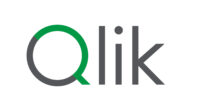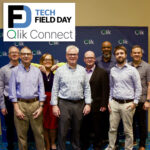|
|
This video is part of the appearance, “Qlik Presents at TFDx Qlik Connect 2025“. It was recorded as part of Tech Field Day Experience at Qlik Connect 2025 at 12:30-16:30 on May 12, 2025.
Watch on YouTube
Watch on Vimeo
In this presentation from Tech Field Day Experience at Qlik Connect 2025, Qlik’s Nick Magnuson and Kyle Jourdan discuss Qlik’s strategic approach to artificial intelligence, focusing on integrating AI to solve real business problems with accuracy and trust. They explore how Qlik’s AI approach encompasses traditional predictive analytics, generative AI, and newer agentic AI paradigms—all within a unified, enterprise-grade ecosystem. The presentation emphasizes the evolution of Qlik’s AI capabilities, including the integration of structured and unstructured data within Qlik Answers, the expansion into autonomous agent actions, and the critical importance of customer-centric AI deployment.
In the session, Magnuson articulates Qlik’s AI philosophy, explaining how a pragmatic, use-case-first mindset underpins their strategy. Rather than blindly adopting large language models (LLMs) or generative AI for the sake of innovation, Qlik promotes applying the right form of AI—whether predictive, generative, or agentic—based on the specific business need. He shares concrete examples such as healthcare applications using predictive models to reduce patient no-shows and recover lost revenue, demonstrating how Qlik’s platform, bolstered by its acquisition of BigSquid and the resulting Qlik Predict, has delivered over a billion predictions. With Qlik Answers, initially a generative AI tool for unstructured data, now embracing agentic AI concepts, the platform can act autonomously on structured data, bridging the gap between conversational insights and actionable business operations.
The presentation continues with Jourdan providing a deep dive into the agentic evolution of Qlik Answers. He demonstrates how the system can handle natural queries, pull structured and unstructured data, generate visualizations, and take contextual actions such as sending messages or updating databases—all through a codeless, drag-and-drop interface. Advanced features such as explainability, AI trust scores, and the handling of lifecycle concerns like data governance and versioning are also discussed, emphasizing Qlik’s commitment to enterprise-grade standards. Moreover, Qlik’s neutral stance as an independent vendor provides flexibility for integration and multi-platform support, distinguishing it from hyperscalers with closed ecosystems. In closing, the session showcases upcoming tools like native time-series modeling and further automation integrations, reinforcing Qlik’s vision to empower users across technical skill levels to leverage the full power of AI responsibly and effectively.
Personnel: Kyle Jourdan, Nick Magnuson









